
STAMMA Survey 2021: Results
25th March 2022
A big thank you to everyone who responded to last year's STAMMA survey*. In it, we asked about your experiences of stammering and also for your feedback on us and our activities.
The results of the survey gave direct evidence of how widely stammering can affect people's lives, and in very different ways, and provided feedback on what STAMMA does now, and what we can do better.
WHO RESPONDED?*
Of the 146 responses, 73% were from people who stammer (others being parents, speech & language therapists, etc). Just over 30% were under 40 years old. A similar proportion were 40-55, and 37% were spread across those aged 55 and over.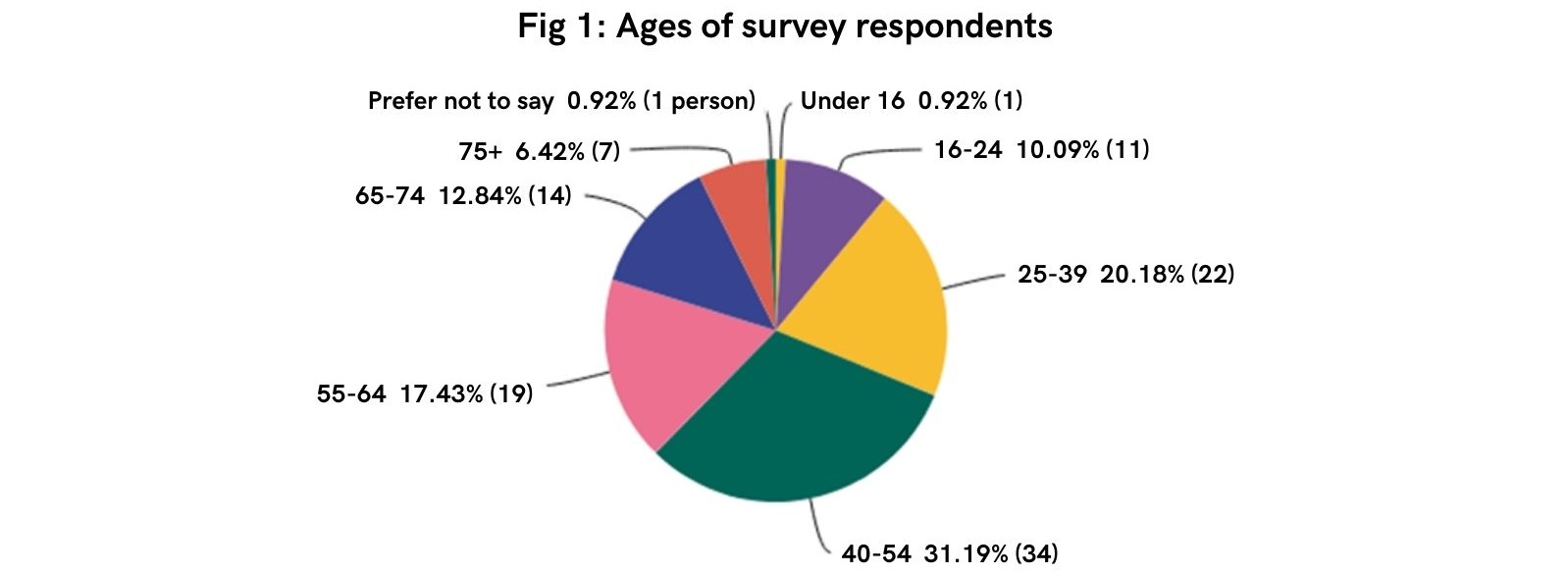
EXPERIENCES OF STAMMERING
The headline is clear: stammering impacts every aspect of life.
The numbers speak for themselves: stammering impacts work (for 64% of respondents), social life (58%) and family life (40%). 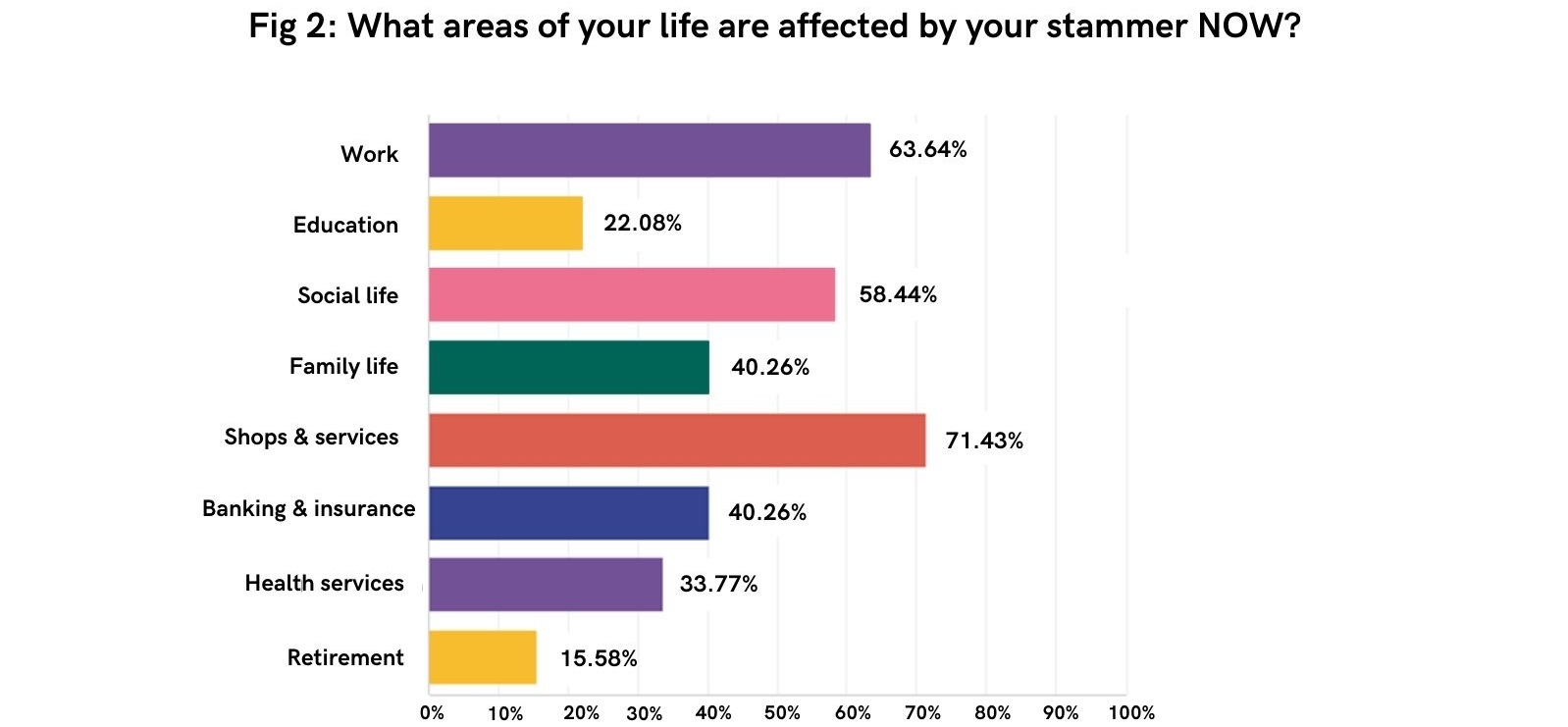 It is striking how widely stammering affects access to everyday services. Shops & services were cited by a large majority (71%), followed by banking & insurance (40%) and health services (34%).
It is striking how widely stammering affects access to everyday services. Shops & services were cited by a large majority (71%), followed by banking & insurance (40%) and health services (34%).
Fewer respondents cited education (22%) and retirement (16%) as being affected by stammering. However, that was because only a minority of survey respondents were either in education or retired.
PERSONAL EXPERIENCES
Next, we asked how closely a selection of statements relate to your own experience of stammering. From the results, we see that it's different for different people — some agree that a particular experience applies to them while others disagree.
For each individual, stammering can be a mixed experience — a very common response was that the statements 'sometimes' apply (a third of respondents said that). There were only three statements out of seven where over 50% agreed or disagreed.
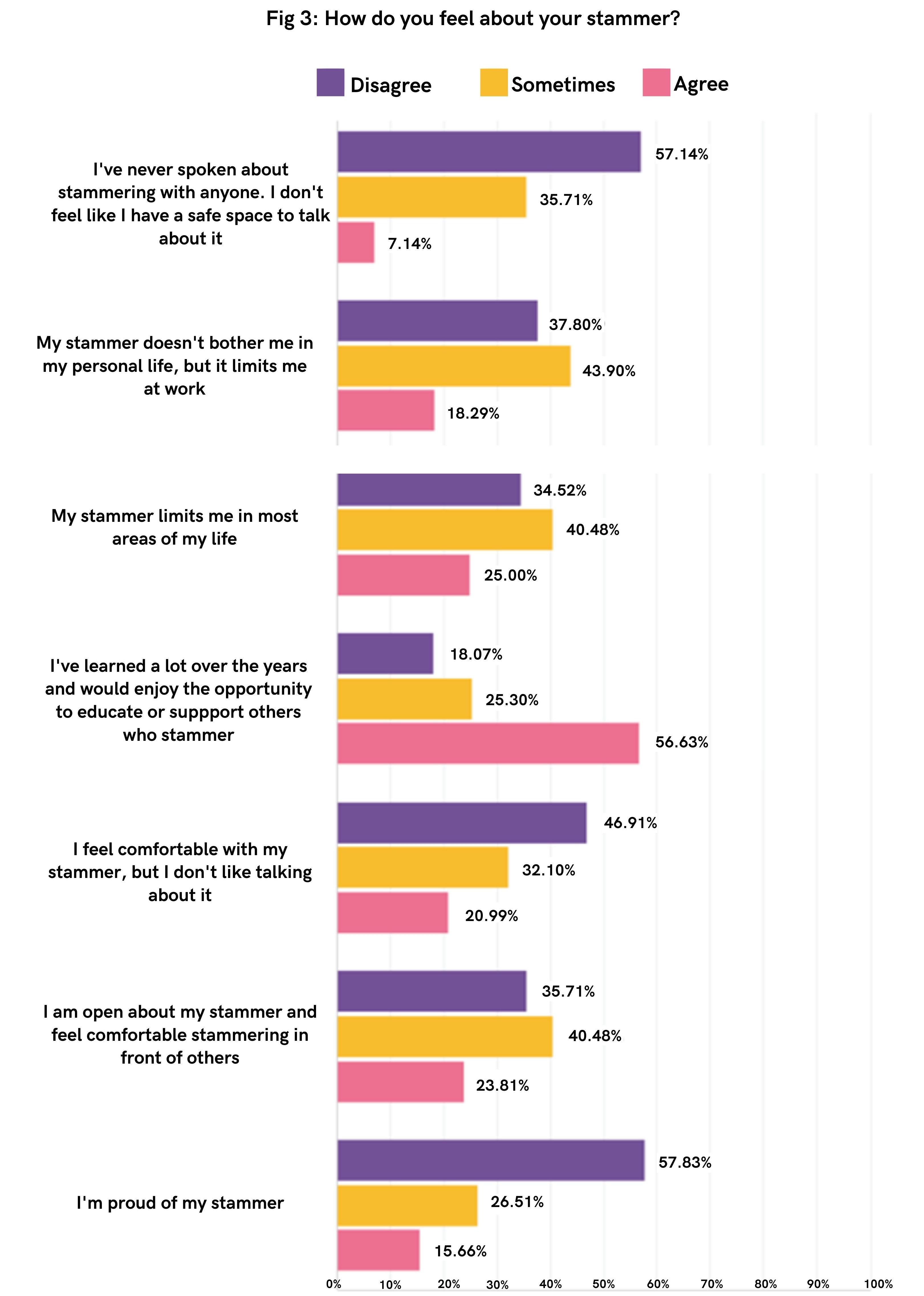
Just over half of those surveyed, 57%, felt able to talk about their stammer, which is good, but clearly we haven't reached the point where it feels OK to stammer or talk about stammering.
59% said they'd enjoy the opportunity to educate or support others who stammer — a strong message to us at STAMMA that we have a community of people keen to help and support others.
Finally, 58% said they weren't proud of their stammer.
We asked if people felt comfortable using our helpline or webchat. 89% of respondents said they were, with a near-identical result among those who stammer.
ABOUT STAMMA'S ACTIVITIES
What activities have you taken part in?
69% of respondents said they have voted in our Trustee elections. The next highest was listening to our 'Around the Block' podcast, at 34%. 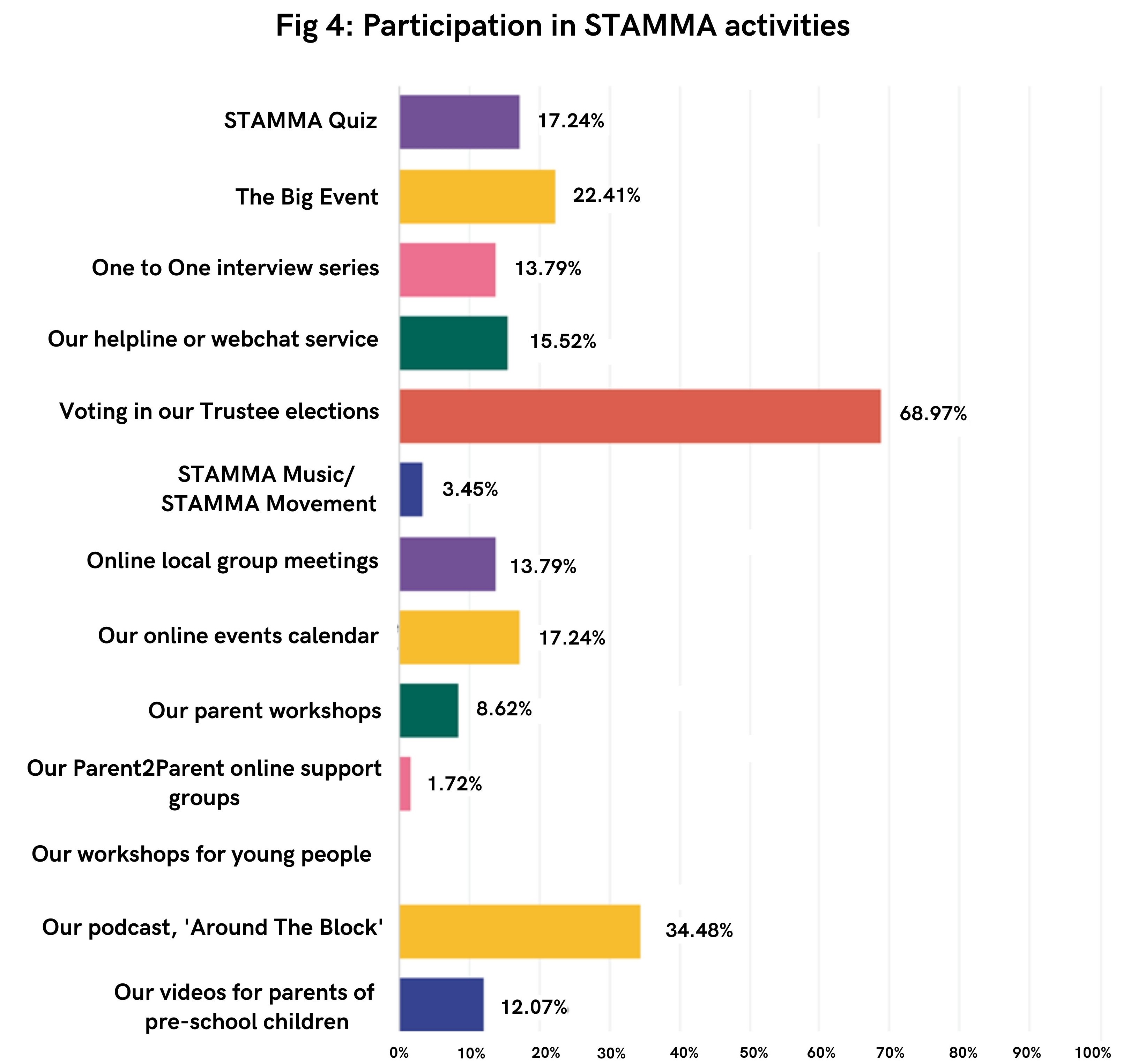 Some of the other results are low, which may reflect that some activities are recent innovations (workshops for parents and young people) and that at the time of the survey only a few sessions had been held.
Some of the other results are low, which may reflect that some activities are recent innovations (workshops for parents and young people) and that at the time of the survey only a few sessions had been held.
What do you want from STAMMA?
This revealed a depth of interest across lots of areas.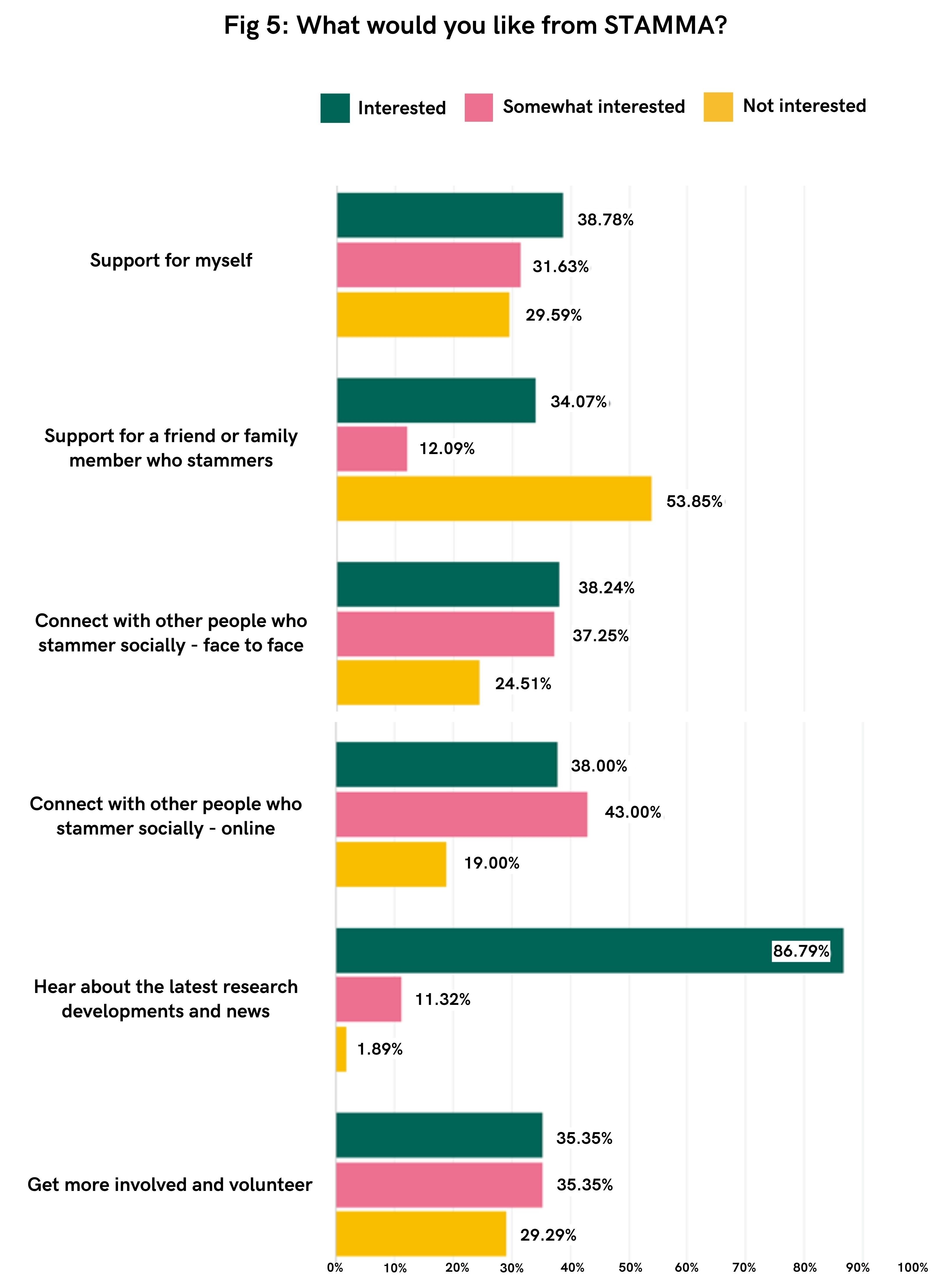 A large majority (87%) said they wanted to hear about research. This is great news, as we've recently begun the Research Arena, an opportunity to learn about and influence stammering research. And we'll be sure to keep reporting research findings in our website features.
A large majority (87%) said they wanted to hear about research. This is great news, as we've recently begun the Research Arena, an opportunity to learn about and influence stammering research. And we'll be sure to keep reporting research findings in our website features.
There's also a recurring message that people want support, connection and involvement. Some 30-40% of respondents highlighted these, with a similar proportion saying they were 'somewhat interested'.
The same message came through in written suggestions, with requests for more local activities and groups, offering more ways to meet with other people who stammer. There were plenty of opinions on what else STAMMA should be doing. We will look at all the ideas. In the meantime, here is a flavour:
- "More help for members who are job hunting"
- "...awareness in workplaces"
- "…ways to empower more people — there are so many people who want to make a difference — so many talented people applying to be Trustees…"
- "…actively working with tech companies like Google to improve automated speech recognition…"
- "Educating those who don't stammer"
- "Talks in schools and nurseries."
Do you follow us on social media?
Around a third of respondents (32%) don't follow us on social media. This applied particularly to the over 55s.
STAMMA's Facebook page is the most popular social media source, followed by 46% of respondents. The next most followed is our Twitter account, at 35%. We asked about interest in a new online forum; 81% said yes or maybe — with this positive interest spread across age groups. 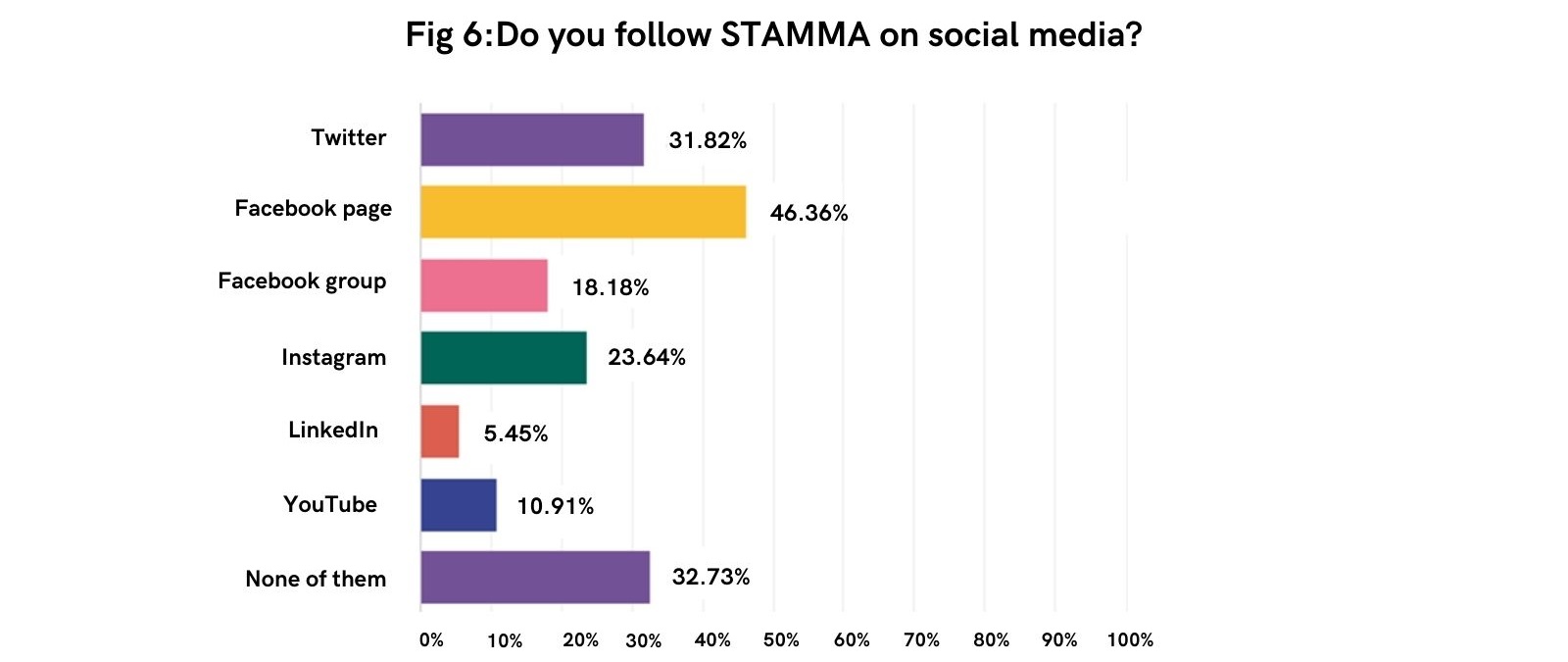
STAMMA's Newsletters
There were some great practical suggestions on what features of our email newsletters grab — or don't grab — attention, as the wordcloud below demonstrates:
Our campaigns
A quarter to a third of respondents spotted our recent campaigns, like Find The Right Words. Most saw them on social media, followed by digital billboards.
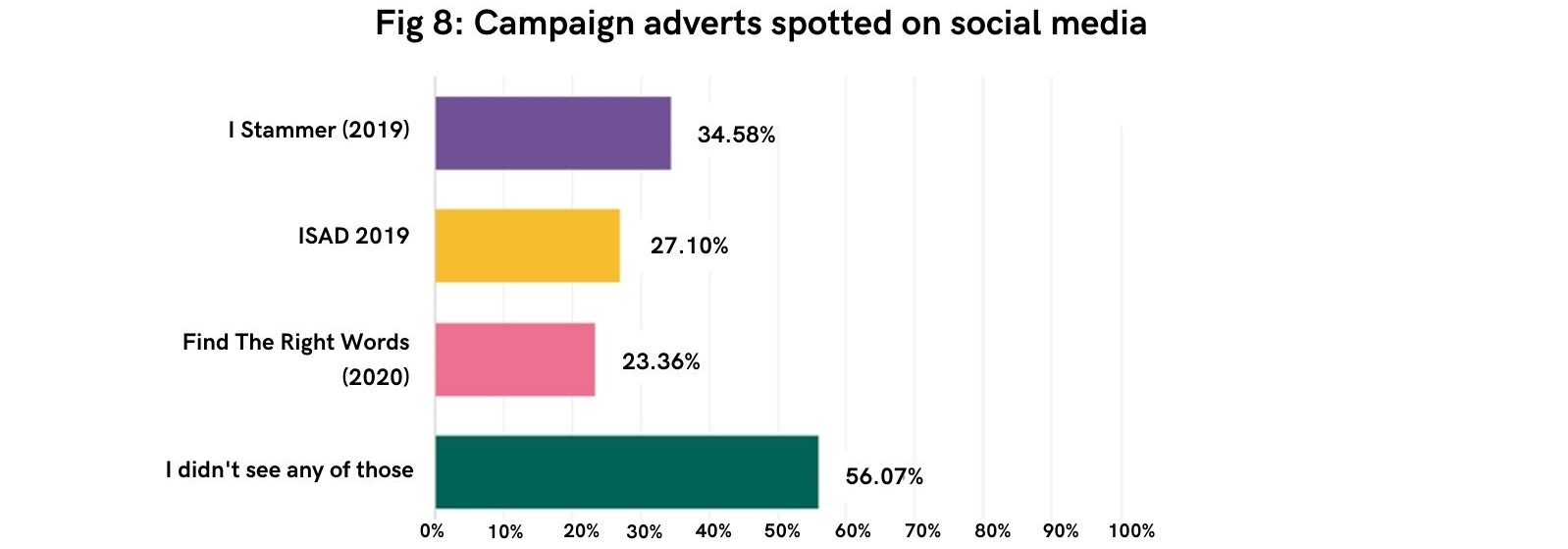 56% of respondents didn’t spot them at all. The challenge is how to reach those not on social media (the cheapest form of advertising)?
56% of respondents didn’t spot them at all. The challenge is how to reach those not on social media (the cheapest form of advertising)?
It was great to hear that people find the campaigns empowering; this message came from people who stammer, parents of children who stammer and speech & language therapists (SLTs). Here are some quotes:
- "I think they're great! They raise awareness in a fab way :)"
- "As an SLT I liked them and found them to be good conversation starters for people who want to know more about stammering."
- "I think anything that raises awareness is great. It makes my son feel like he is not alone."
- "I thought they were effective and positioned stammering and stammering awareness in a positive and empowering way."
Getting involved with STAMMA?
There's willingness to support us across a whole range of activities.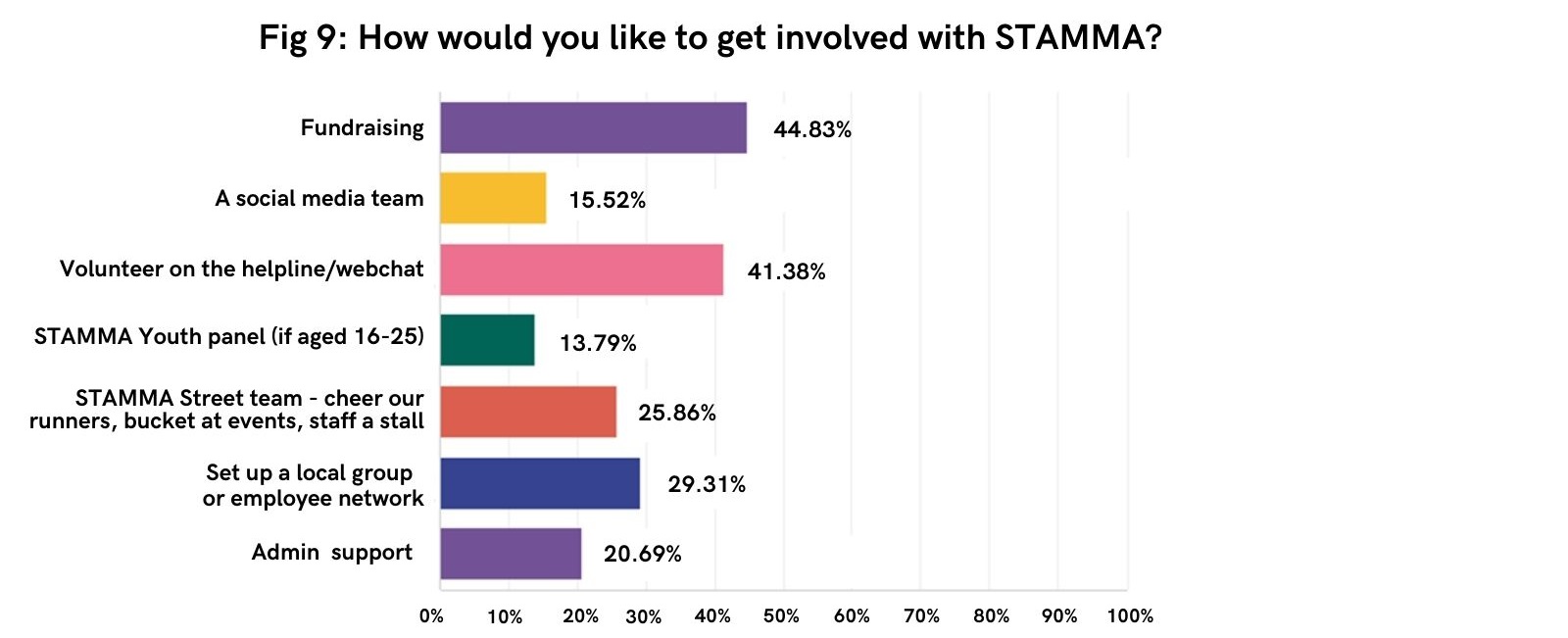 Over 40% expressed interest in fundraising and/or volunteering on the helpline or webchat. That's great news – our activities depend on volunteers. 29% were interested in setting up a local group — which chimes with the messages about people wanting support, connection and involvement.
Over 40% expressed interest in fundraising and/or volunteering on the helpline or webchat. That's great news – our activities depend on volunteers. 29% were interested in setting up a local group — which chimes with the messages about people wanting support, connection and involvement.
IN CONCLUSION
The results on the experiences of stammering add to the evidence that it can impact every aspect of people's lives, and that the experience of stammering differs between each individual, as well as being changeable.
As for the feedback on STAMMA, we're encouraged by the positivity and thank everyone for their comments.
We'll look at how we can act on this survey. Our previous survey in 2019 led us to introduce webchat (now nearing its 2nd anniversary), rejig the helpline opening hours and introduce our popular STAMMA Social events. We'll look at:
- The 'reach' of our activities. Are we getting the message out that STAMMA's variety of events are happening?
- How we help people to support, connect and get involved with and meet with other people who stammer.
- How we expand the reach and visibility of future campaigns.
Once again, many thanks to those who responded to the survey, and to everyone who expressed interest in helping STAMMA. We'll be in touch with those who left details. For anyone else who's interested, please contact us using our volunteer form.
If you're not already a STAMMA Member, please join for free so that you can have your say in our 2022 survey.

































